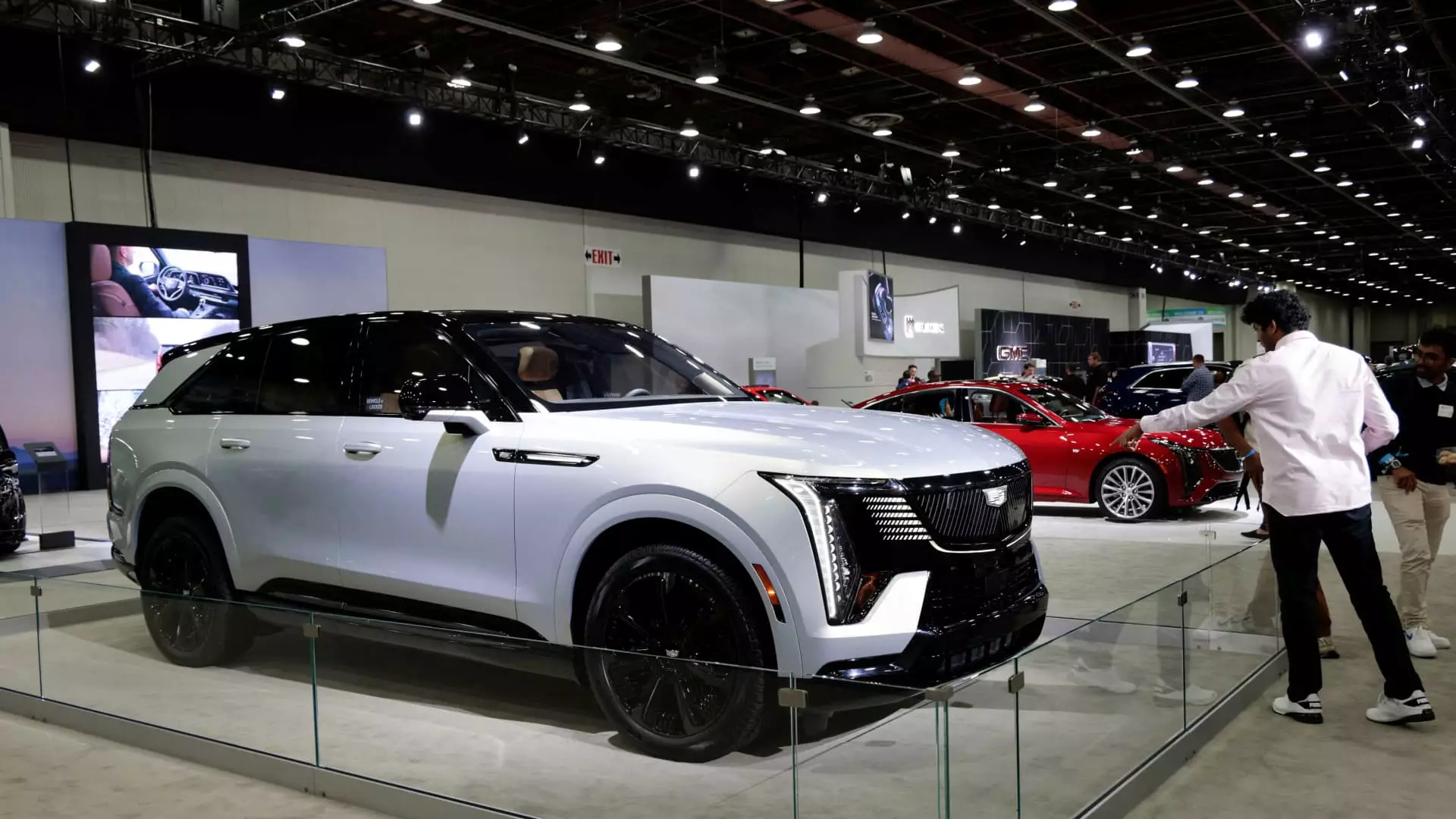Cadillac is not merely rebranding; it is revamping its identity through an extensive push into the all-electric vehicle (EV) market. This strategy is already showing promise, with nearly 80% of Cadillac EV buyers being first-time customers. What stands out even more is the noticeable trend of Tesla owners trading in their electric vehicles for Cadillac’s offerings, marking a significant shift in consumer loyalty. This year, approximately 10% of customers who opted for a Cadillac came straight from Tesla, a stat that suggests a burgeoning dissatisfaction with the latter’s brand ethos, especially amidst its CEO Elon Musk’s controversial political affiliations.
Any smart marketing executive would recognize this as a golden opportunity. Brad Franz, Cadillac’s director of global marketing, highlighted that this surge isn’t merely a stroke of good luck but a direct result of Cadillac’s well-rounded EV portfolio, which includes models like the Lyriq and the newly unveiled Vistiq SUV. With Cadillacs supposedly outshining Tesla in merit, the question arises: Are customers making an informed and deliberate choice, or are they simply responding to the whims of a shifting political landscape?
The Complexity of Consumer Choices
While Cadillac is certainly pulling on the heartstrings of former Tesla enthusiasts, it’s essential to dissect the underlying factors driving these acquisitions. Many Tesla owners are making a conscious decision to leave the brand, which may hint at a dissatisfaction with Tesla’s performance on multiple fronts—from product quality to customer service. According to Joseph Yoon from Edmunds, those breaking away from Tesla are often not comparing it with Cadillac; they are more focused on securing a new vehicle that aligns better with their current priorities. This behavior is indicative of a deeper identity crisis amongst Tesla holders, perhaps fueled by recent controversies surrounding Musk’s actions in the political arena.
While it is obvious that individual car buyers are increasingly opting for alternatives, it remains clear that not all of these choices are fueled by a deliberate cross-shopping process. In fact, data reveals that the majority of Cadillac shoppers are exploring homegrown options, which perhaps reflects a longing for American-made luxury, rather than seeking to find a clone of their previous EVs. This ambivalence towards Tesla suggests that loyalty to a brand can be remarkably fragile, particularly when the corporate ethos diverges wildly from the values cherished by consumers.
An Electric Lineup: Quality or Quantity?
Cadillac’s climbing conquest rate does not guarantee sustained success. The brand’s current lineup, featuring models ranging from entry-level options like the Optiq to the high-end bespoke Celestiq, creates an impression of diversity. However, a diversified portfolio only proves successful if it delivers on quality. The nagging question is whether Cadillac can maintain this momentum against the titans of the EV sector, especially when brands like Tesla hold a formidable precedent in innovation and perceived prestige.
Take the Cadillac Lyriq, for instance. Despite being marketed as Cadillac’s flagship EV, it is still unclear whether this model can eclipse its Tesla counterparts in consumer regard. Yoon’s data reveal that while the Lyriq stands tall in cross-shop comparisons against domestic competitors like the Ford Mustang Mach-E, Teslas remain a formidable reference point. The dichotomy lies within luxury perception; while Cadillac aspires to seduce tech-savvy consumers with a luxury badge, Tesla continues to be the face of modern electric transportation.
Furthermore, Cadillac’s ambition to become the top luxury EV brand is commendable, yet fraught with challenges. The luxury EV segment is increasingly crowded, and competition will only intensify as automakers pivot towards electrification. The consumer sentiment indicates a possible shift, but Cadillac must ensure an equal balance between technological advancement and luxury appeal.
A Tug-of-War for Brand Loyalty
In this tug-of-war for consumer loyalty, Cadillac’s modern narrative clashes with Tesla’s established reputation. While Cadillac touts new models packed with the latest tech and style, there is an inherent risk that adopting a confrontational approach to Tesla might backfire, amplifying the disdain many Tesla owners harbor toward their former brand. Perhaps it’s prudent for Cadillac to emphasize the intrinsic qualities of its vehicles rather than strengthen itself through the downfall of another brand.
Ultimately, Cadillac’s emerging strategies present a double-edged sword. There’s an undeniable allure to its new EV lineup, but will it be enough to appease customers burned by previous experiences with competing brands? The auto industry often mirrors societal trends, and Cadillac must remain vigilant to ensure it is not only riding the coattails of current events but actually contributing to a sustainable and respected future for all electric vehicles. The path ahead is uncertain, yet Cadillac’s bold moves signal that the American luxury automotive brand is in earnest pursuit of a sea change in the electric vehicle landscape.

